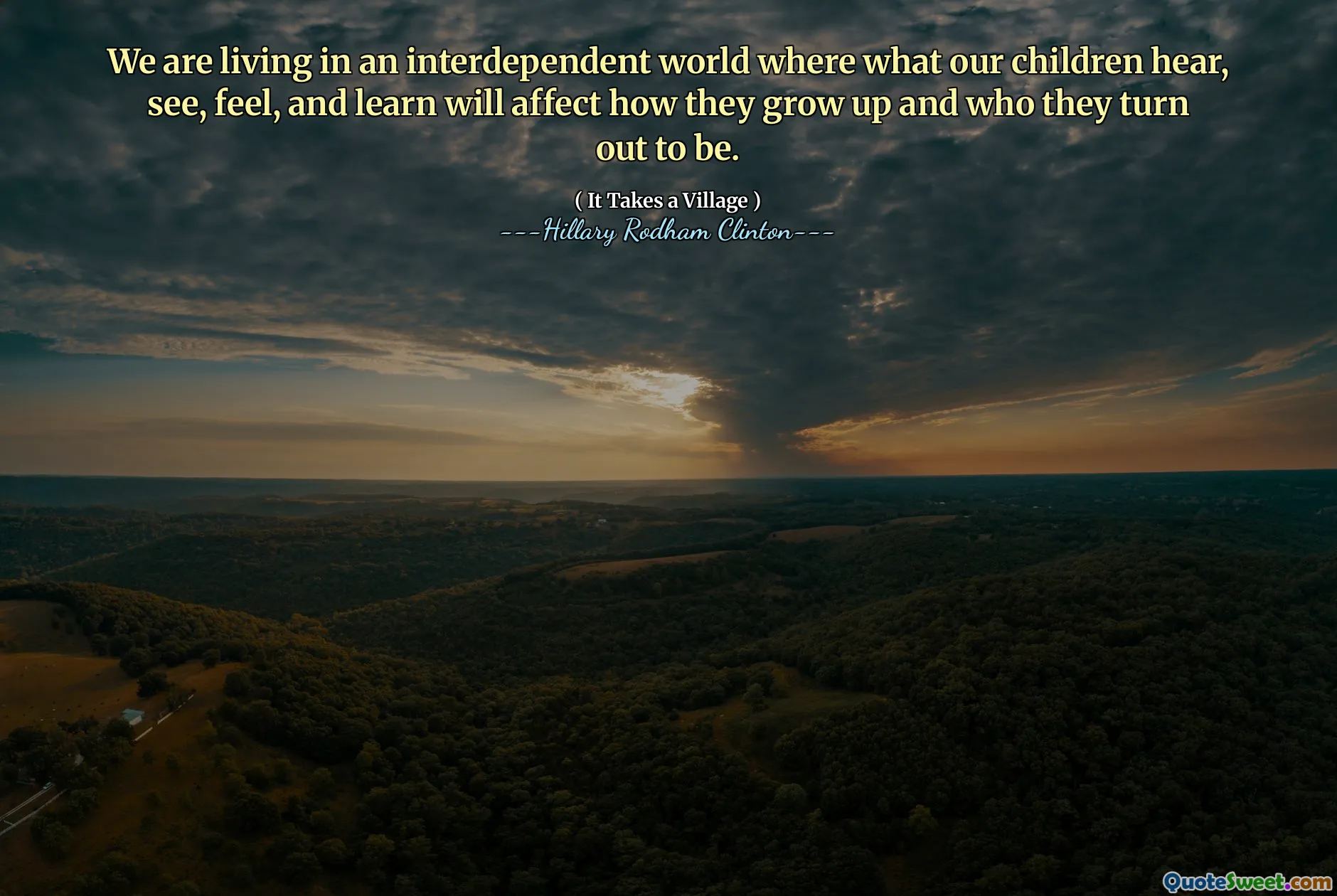
We are living in an interdependent world where what our children hear, see, feel, and learn will affect how they grow up and who they turn out to be.
This quote underscores the profound interconnectedness of our modern society and the pivotal role that our environment plays in shaping the future generations. In our increasingly globalized world, the influences that children are exposed to extend beyond immediate family and community, encompassing media, education systems, peer interactions, and cultural norms. These elements collectively form the foundation of a child's understanding of the world, their values, and their sense of self. Recognizing this interdependence compels us to be mindful of the information and experiences we facilitate for children, as these will influence their development and identity. For instance, positive role models, constructive media content, and inclusive educational practices can foster empathy, resilience, and critical thinking. Conversely, exposure to harmful stereotypes, violence, or misinformation can have detrimental effects, shaping children’s perceptions and behaviors negatively. This awareness encourages a nurturing approach where adults, educators, and policymakers work collaboratively to create environments that promote healthy growth. Additionally, it highlights the importance of a societal responsibility to ensure that the messages conveyed to young minds reinforce compassion, understanding, and sustainability. Embracing interdependence means acknowledging that the well-being of our children is intertwined with the health of our communities and the planet. Ultimately, cultivating an environment rich in positivity, knowledge, and empathy can empower children to become conscientious individuals who contribute positively to an interconnected world, fostering a future shaped by awareness and shared responsibility.






